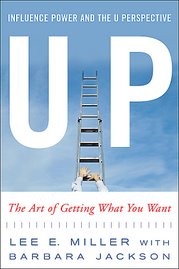
Is the weak economy causing you to hesitate to ask your boss for a raise?
Ninety percent of employees do not feel this is a very good time to ask for a raise, according to a recent human resources survey sponsored by Randstad, a worldwide staffing agency with offices in Princeton, Parsippany, Swedesboro and Plainfield. The online poll was drawn from a pool of 2,200 employees and 1,295 employers in the United States.
Most people these days seem to be more worried about keeping their jobs than getting a raise. That can be a costly mistake. The right time to ask for a raise is when you deserve one, regardless of the general state of the economy.
What do you have to do to get a raise in a tough economy? You not only need to do something that merits a salary increase, but you need to affirmatively promote your accomplishments. Unless you tell them, most bosses don't actually know what you've accomplished, and may even give credit to someone else for your successes. If you want a raise, make sure your boss knows how you have contributed to his or her success and that you can continue to help make him or her look good.
One way to demonstrate you deserve a raise is to learn new skills or take on greater job responsibilities. Presented properly, your boss will recognize the new skills or additional work being done will make him look good. Particularly in a tight economy, if your boss can achieve greater productivity without hiring additional staff, you can get a raise and your boss can justify it on the basis of saving the company money.
How you go about asking for a raise is also important. Eileen Habelow, Northeast regional vice president of Randstad, recently gave a bigger raise than she had planned because of the way her employee approached the topic.
She asked this individual to take over a troubled account and offered him an increase in salary, but the way he responded caused her to rethink the amount she had offered. He told her "he was flattered that she had thought of him for this tough job and was excited by the challenge even though it required him to leave a secure position where he doing extremely well."
That simple statement reminded her that not only was he the best choice to solve her problem with this account, but also that accepting this position would entail both financial and professional risk for him. So even though she believed he would accept the job at the salary she had initially offered, when he asked for a larger increase she gave him one.
Prepare carefully before you ask for a raise.You don't simply wake up one morning and ask for one. You have to have a good reason. "I have not had a raise in a long time" is not a good reason, especially in a weak economy.
"I just completed my MBA;" "I am your top producer;" "I took on additional responsibilities when Sally left;" or "I have a job offer from a competitor." Those are reasons to request a raise.
Show how you have gone above and beyond what was expected.Use the internet to determine the market value for the work you are doing. Also, recognize the unique value you bring to your employer, those things you do that would be difficult for your employer to replace if you left. Utilize that information to make the case for a raise.
However, never threaten to leave if you don't get what you are asking for. Doing so will put your boss on the defensive and make it just as likely that she will show you the door as give you a salary increase.
When you are seeking a raise, bear in mind the advice of Ron McMillan, co-author of "Crucial Conversations: Tools for Talking When Stakes Are High:" "You are not asking for a favor, you are engaged in a business negotiation."
Demonstrate why you deserve one, explaining how you determined a higher salary is warranted. A salary increase is not the only way you can get a raise. You can also ask for more time off, the ability to work a few days a week from home, additional training opportunities or a bonus based on achieving certain agreed upon results.
A veteran human resources executive, Lee E. Miller is the author of "UP: Influence Power and the U Perspective -- The Art of Getting What You Want," and the co-founder of YourCareerDoctors.com, a website devoted to career success. Mail questions to Lee@YourCareerDoctors.com.





